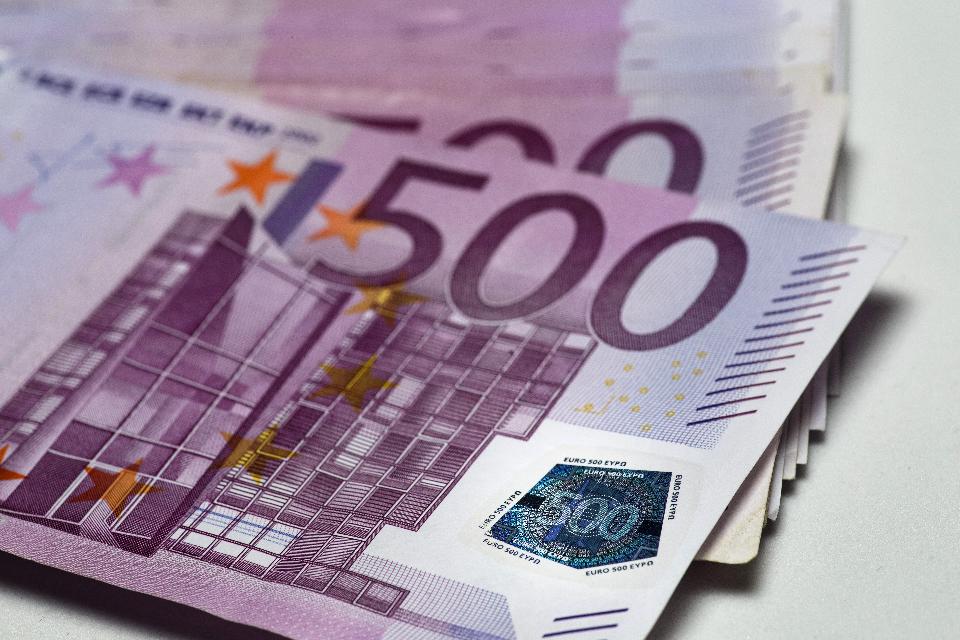- Investors Jump Back Into the Euro as Going Short Proves ‘Lethal’
Hedge funds. Asset managers. Central banks. These are just some of the players in the $5.1 trillion-a-day currency market who are buying the euro after shunning it over the past three years.
The shared currency has snapped its losing streak to become the best performer among Group-of-10 peers in 2017. After plunging to a 14-year low in January, the currency has staged a stunning comeback, rising to $1.1910 on Aug. 2, a level not seen since January 2015.
“To be short euros here is absolutely lethal,” said Ulf Lindahl, chief executive officer of A.G. Bisset Associates, who manages about $1 billion from Norwalk, Connecticut. He expects the currency to rise to $1.30 by the end of the year, if not sooner. Even after its 3.6 percent rally in July, investors and analysts are predicting further gains. So who’s buying euros, and why?
Hedge Funds
Hedge funds initially missed out on the euro rally by holding net-bearish bets until May before jumping in, according to data from the U.S. Commodity Futures Trading Commission. Since then, speculators have piled headlong into bullish bets, building up the biggest net-long position in six years.
Fast-money traders who use momentum and trend-following strategies were well positioned for the rally, said James Kwok, London-based head of currency management at Amundi SA, which manages about 1.3 trillion euros ($1.5 trillion).
The “euro has been suffering for quite a few years,” Kwok said. “The political risk has diminished a lot and the economic momentum is getting better, and so now is the time for the euro to get back from the undervaluation level.”
U.S. Investors
U.S. investors will “increasingly look overseas for returns,” spurring flows into euro-denominated investments, said Lee Ferridge, head of macro strategy for North America at State Street Global Markets in Boston. They’ll probably do so without hedging against a weaker dollar, which would boost profits earned abroad, he said.
“The biggest potential driver of equity inflows into Europe would be U.S. investors,” which would tend to support the euro, said Alessio de Longis, a New York-based money manager in OppenheimerFunds Inc.’s global multi-asset group. That’s because dollar-based investors would have to buy euros in order to settle stock trades in the common currency, he said.
Euro three-month risk reversals, a barometer of medium-term directional bias, remain staunchly positive, with euro calls at premium levels last seen in 2009.
European Investors
Rising confidence in the European economy recovery gives investors there a good reason to buy assets closer to home, bolstering the euro, State Street’s Ferridge said.
The euro has shaken off its status as a second fiddle as European growth and inflation recovered, while political risks subsided after the election of French President Emmanuel Macron, spurring bets that the European Central Bank will pare stimulus.
Local investments allow traders to sidestep currency risk from overseas bets, said Amundi’s Kwok. He sees the euro rising to a range of $1.20 to $1.25 for the rest of the year and is keeping a close eye on whether Macron can implement economic reforms.
At the same time, European corporations that earn revenue in U.S. dollars will look to hedge against any gains in the euro, said Lindahl at A.G. Bisset.
Central Banks
Reserve managers could be another key buyer of euros in the months ahead, according to Kwok and State Street’s Ferridge. Central banks have boosted the euro’s share of their holdings in recent quarters after reducing holdings in 2014 and 2015 when concerns about Greek debt and political turmoil diminished its appeal as a reserve currency.
While the outlook for Europe has stabilized, U.S. political drama has escalated. Against this backdrop, reserve managers may opt to rebuild their euro holdings, which would cause yet more strength for the currency.
“The whole European project looks to be on stronger footing politically,” Ferridge said. In the U.S., “we have an administration that’s pretty inexperienced politically, and I think the changes that we’ve seen in the administration, the uncertainty, it’s not going to sit will with reserve managers. The euro would be a beneficiary from that.”




 Forex2 weeks ago
Forex2 weeks ago




 Naira2 weeks ago
Naira2 weeks ago
 Billionaire Watch1 week ago
Billionaire Watch1 week ago




 Naira2 weeks ago
Naira2 weeks ago




 Naira1 week ago
Naira1 week ago




 Naira4 weeks ago
Naira4 weeks ago
 Nigerian Exchange Limited4 weeks ago
Nigerian Exchange Limited4 weeks ago


 Naira3 days ago
Naira3 days ago














